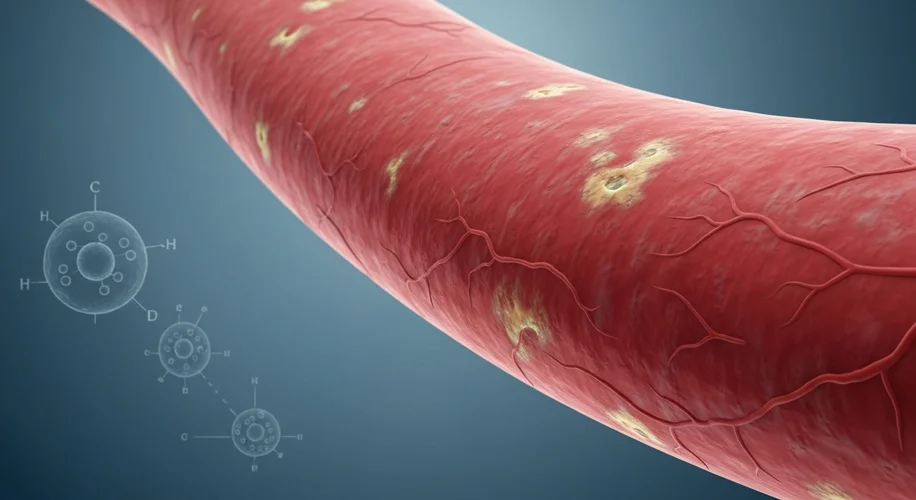As someone who studies how our environment impacts our health, I’m always looking for those connections that might not be immediately obvious. Today, I want to talk about something that’s been making waves in the scientific community: the impact of COVID-19 on our blood vessels.
New research is shedding light on how even a mild COVID infection can affect our circulatory system, making blood vessels age faster. This isn’t just about short-term effects; it points to longer-term changes in our bodies.
Did you know that even after the initial illness, the virus can leave lasting marks? Studies are showing that COVID-19 can cause inflammation and damage to the lining of blood vessels. This damage can lead to a process called endothelial dysfunction, where the vessels don’t function as efficiently as they should. Think of it like the pipes in your house getting clogged or corroded over time – it restricts flow and makes them less reliable.
What’s particularly interesting, and frankly, a bit concerning, is that this aging effect seems to be more pronounced in women. While the exact reasons are still being explored, it highlights a crucial area where we need more research. Understanding these differences is vital, especially when we consider health equity. If certain groups are disproportionately affected by the long-term consequences of a virus, we need to address that.
This research suggests that COVID-19 might be accelerating a natural aging process in our blood vessels. This can have implications for various aspects of our health down the line, potentially increasing the risk for cardiovascular issues. It’s a reminder that viruses can impact our bodies in ways we’re only beginning to fully understand.
It’s important to remember that science is constantly evolving. This is a new field of study, and researchers are working hard to piece together the full picture. The key takeaway for now is that staying informed about the potential long-term effects of infections like COVID-19 is crucial for our overall well-being.
For me, this underscores the importance of continuing to support scientific research that looks at the nuanced ways diseases affect different populations. It’s about making sure our understanding of health is as comprehensive as possible.

